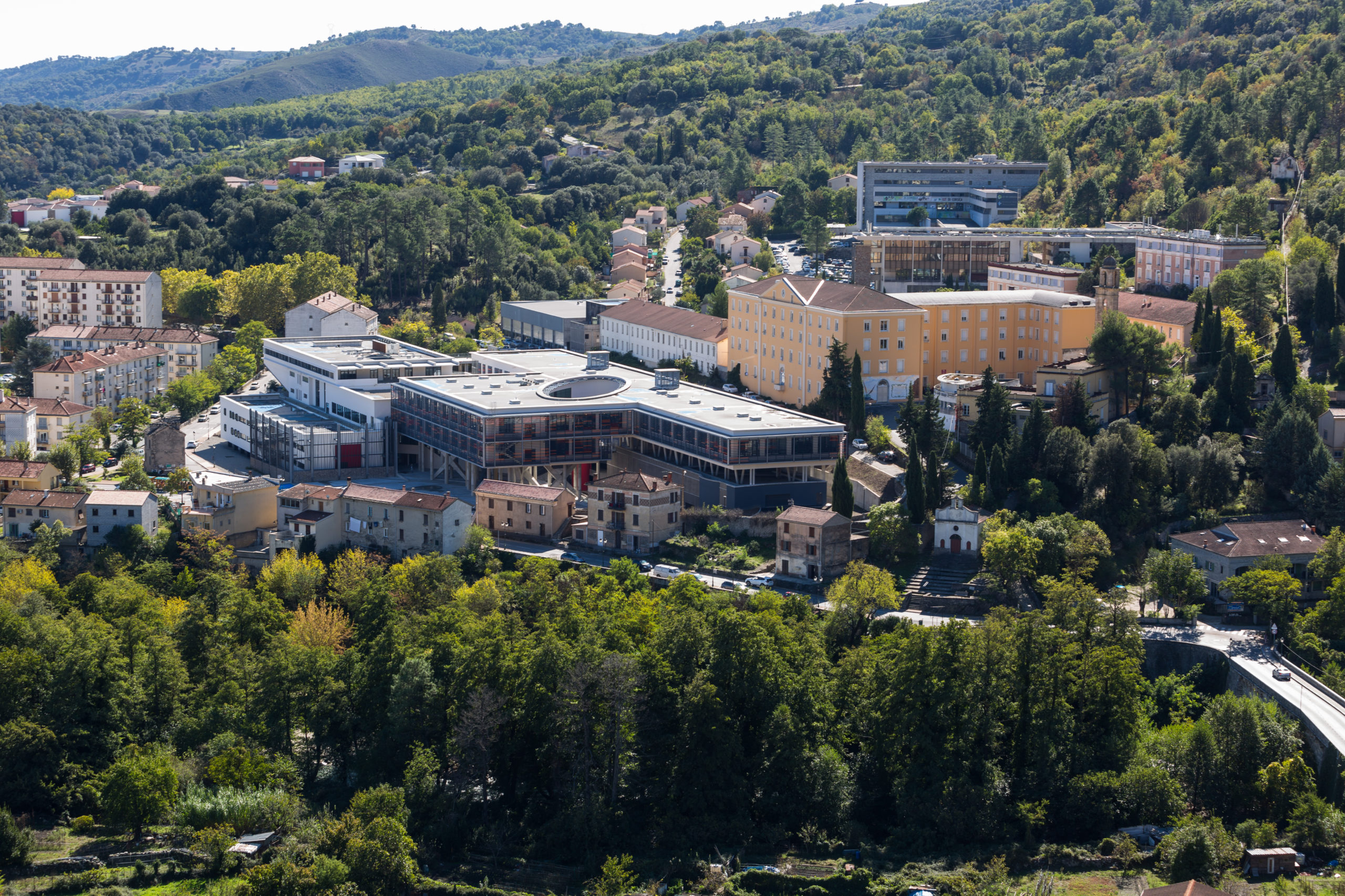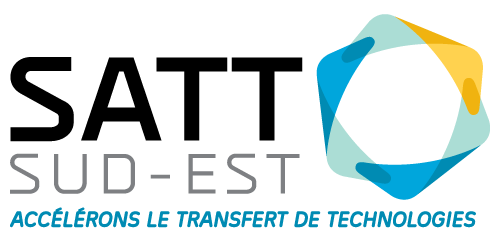Le 21 octobre 2020, ce sont Tunç Ali KÜTÜKCÜOGLU de l’UMR Lisa et Salomé DUCOS du Laboratoire SPE qui ont remporté le Prix SATT Sud-Est dans les catégories SHS et Sciences et Techniques & Santé pour leurs présentations de posters scientifiques

L’Ecole Doctorale Environnement et Société ED 377 œuvre pour donner un aspect professionnalisant plus marqué au parcours de ses étudiants doctorants. Elle organise notamment chaque année un colloque, l’occasion pour les doctorants et les chercheurs de présenter l’état d’avancement de leurs travaux et d’échanger dans un esprit de convivialité et de pluridisciplinarité. La journée s’articule autour d’une conférence « keynote », de pitchs et de présentations de posters. Objectifs ? Les doctorants apprenent à communiquer leurs recherches à des audiences industrielles et scientifiques non spécialisées, informent les membres de la communauté scientifique des avancées de celles-ci et réseautent avec le monde professionnel.
La Journée Des Doctorants, ou comment mêler enjeux professionnels et scientifiques
« Réaliser sa thèse en 2020 dans un centre pluridisciplinaire sous tutelle de l’Université de Corse et selon la politique scientifique menée par celle-ci, engendre souvent un parcours atypique et offre de réelles opportunités pour se construire une expérience professionnelle valorisante. Partage d’expériences, analyse collective des travaux permettent de mieux se positionner dans son environnement scientifique, de prendre conscience et de faire prendre conscience à la société civile de la valeur professionnelle des compétences qu’un doctorant acquiert au cours de son doctorat puis exploite tout du long de son cursus »
Professeur Alain MUSELLI, Directeur de l’Ecole Doctorale Environnement et Société.
L’édition 2020 de la Journée des Doctorants s’est tenue le 21 octobre sur le Campus Grimaldi. Et c’est le Professeur Emmanuel HIRSCH, Président du Conseil pour l’éthique de la recherche et l’intégrité scientifique de l’Université Paris-Saclay, Professeur d’éthique médicale de la Faculté de médecine, et Directeur de l’Espace éthique de la région Île-de-France, qui a donné une conférence intitulée « COVID-19 : éthique, société, politique » – thématique d’actualité alors que la journée se déroulait en présentiel, et la conférence keynote en distanciel.
Depuis 2018, la SATT Sud-Est est partenaire de cet événement auprès de son actionnaire, l’Université de Corse. Cette année encore, c’est Margot PROVOST, Chargée de Transfert de Technologies à la SATT Sud-Est, qui représentait la SATT en tant que membre du jury et remettait 1 Prix distinguant 2 posters. Projecteurs sur les lauréats, Tunç Ali KÜTÜKCÜOGLU et Salomé DUCOS.
Déterminer la place de l’écologie dans la théorie économique dominante dans l’enseignement de premier cycle en Europe
Tunç Ali KÜTÜKCÜOGLU est doctorant en deuxième année de thèse en Sciences économique sous la direction du Professeur émérite Paul-Marie ROMANI et du Docteur Dominique PRUNETTI au sein de l’UMR-CNRS n6240 « Lieux, Identités, eSpaces, Activités » (LISA), sur le projet « TERRA ».
Les travaux de thèse, intitulée « La place de l’écologie dans l’enseignement universitaire en économie ; le cas dans trois pays européens (UK, Allemagne, Suisse) », consistent à étudier les relations entre la théorie économique dominante « néoclassique » et l’écologie, et à déterminer la place de cette dernière dans l’enseignement de premier cycle en économie au Royaume-Uni, Allemagne et Suisse.
3 questions à Tunç Ali KÜTÜKCÜOGLU
Comment faire bénéficier la société civile du fruit de vos recherches ? / How can civil society benefit from the results of your research?
My research may be beneficial for developing better economics theory and education that help the society reach higher goals including sustainable life and well-being, ecological stability, social justice and equity. In my opinion, evolutionary – both social & biological – anthropology must be at the very basis of economics education. Otherwise, economics students can’t see the complete picture including social and ecological realities of life, and are easy prey for economic myths that foster narrow, exploitative and short-term business interests.
Pensez-vous pouvoir influer sur la place de l’écologie dans nos sociétés européennes ? Et si oui, comment ? / Do you think you could influence the place of ecology in our European societies? And how?
Yes, by writing articles and books, giving talks, devising holistic education programs as well as attending discussions that foster ecological literacy – in the deep and broad sense – in education. But the dominant mindset of the modern industrial education – as per the industrial paradigm: human-centered, mechanistic and reductionist worldview – isn’t very easy to overcome; direct and practical life experience with nature, e.g. practical experience with permaculture gardens, natural garden ponds, guided forest tours, natural aquariums etc., is at least as important as theoretical education.
Quelle carrière envisagez-vous pour la suite : enseignement, création d’entreprise, conseil ? / What career do you envision for the future; teaching, business, consulting?
I would like to work at rethinking Economics. Reforming the theory and teaching of economics radically to achieve higher goals like sustainable life and well-being, ecological stability, social justice…
I’d also love founding an academy for holistic education with ecological horticulture & farming as its core. An academy that combines theory and practice, culture tourism and entertainment, production and sales, covering fields like ecological horticulture & farming, ecological tourism, sustainable home and tool making, cooking, sports and fine arts, philosophy, anthropology, economy…
Last but not least, I wish to set up natural aquariums and natural garden ponds for ecological literacy and entertainment.
My article « Misconceptions of neoclassical economics and their possible causes » explains my PhD poster and work. I recently submitted it to an academic journal and it’s now undergoing the routine review process. I hope it will be published soon.
Etudier les performances et traits comportementaux de 2 espèces marines classées vulnérables pour en favoriser la restauration dans les eaux côtières corses
Salomé DUCOS est doctorante en première année de thèse en Physiologie et Biologie des Organismes sous la direction du Professeur Antoine AÏELLO et du Docteur Eric DURIEUX au sein de l’UMR CNRS 6134 SPE, sur le projet « GEM ». Sa thèse s’intitule « Restauration de population du denti Dentex dentex et du corb Sciaena umbra en Méditerranée : évaluation des performances individuelles, suivi individuel et populationnel des juvéniles ». Il s’agit de déterminer les performances individuelles et les traits comportementaux de juvéniles de denti et de corb produits en écloserie, deux espèces de poissons emblématiques de Méditerranée, présentes dans les eaux côtières corses et classées « vulnérable » sur la liste rouge IUCN (Global pour le denti et Méditerranée pour le corb).
4 questions à Salomé DUCOS
Salomé, dites-nous pourquoi et comment l’aquaculture répond aux enjeux de la préservation du milieu et des ressources halieutiques ?
Le denti et le corb sont deux espèces de poissons emblématiques de Méditerranée présentes dans les eaux côtières corses. Pour les préserver, des mesures in situ ont été prises. Ces espèces sont toutes deux classées « vulnérables » sur la liste rouge IUCN depuis 2011 et le corb fait l’objet d’un moratoire sur la pêche récréative depuis 2013. En complément de ces dispositions, l’aquaculture pourrait constituer une stratégie de conservation ex situ, grâce à un soutien actif à leur reproduction et au recrutement. Des actions de restauration de population pourraient alors être conduites à partir de juvéniles produits en écloserie, puis relâchés dans le milieu après que leurs performances individuelles aient été déterminées.
L’objectif de ma thèse est justement d’étudier la faisabilité de cette stratégie en testant l’effet de différents protocoles de reproduction et d’élevage en particulier sur le comportement des individus produits à la plateforme STELLA MARE en lien avec leur adaptation au milieu naturel. Cette méthode de restauration de population serait ainsi destinée à limiter le déclin de stocks de poissons présentant un intérêt halieutique avéré.
Selon vous, quelles seront les retombées sociétales à restaurer les populations de ces deux espèces en termes de préservation de l’écosystème marin, et quelles influences cela peut-il avoir sur la valorisation territoriale par la pêche professionnelle ou récréative à l’échelle de la Méditerranée ?
Grâce aux différents échanges que j’ai pu avoir avec des pêcheurs, ou plus largement, auprès de professionnels dont l’activité dépend économiquement de ces espèces, j’ai pu appréhender les enjeux et les difficultés auxquelles ils font face.
Il est trop tôt pour se prononcer, il existe en réalité très peu d’études sur le sujet et aucune sur ces espèces, la démarche est donc pour l’instant tout à fait expérimentale afin d’apporter un maximum de connaissance sur le sujet. Mais à moyens termes, j’espère évidemment fortement que ces programmes porteront leurs fruits en termes d’application. Aujourd’hui, l’heure n’est plus aux constats mais bien à la recherche active de solutions concrètes pour répondre à ces problématiques. Plus globalement, la préservation locale des ressources halieutiques mêle les secteurs de la science, de la pêche, de la gestion de l’environnement et de l’économie et nous avons tout intérêt à travailler ensemble en vue de retombées sociétales bénéfiques sur le territoire.
Envisagez-vous le développement d’une filière de production aquacole de ces espèces, à l’instar de ce qui existe pour le bar ou la daurade ?
Nous travaillons effectivement en partenariat avec des aquaculteurs pour envisager une production à plus grande échelle de ces espèces pour leur commercialisation. Les travaux de la plateforme STELLA MARE concernent également la maîtrise de la phase larvaire ou encore du rendement de production dans une perspective d’industrialisation des protocoles. Ce travail est réalisé en parallèle de la thématique de la restauration du milieu.
Dites-nous quelles sont les perspectives de valorisation de vos travaux et comment les professionnels ou bien les amateurs de pêche pourront bénéficier de ces résultats ?
Il est tout à fait motivant et intéressant d’imaginer que ces travaux pourront contribuer à la préservation des ressources halieutiques sur différents territoires à l’échelle de la Méditerranée par le transfert des protocoles et connaissances à d’autres laboratoires et équipes de gestionnaires pour répondre à des enjeux spécifiques.
Pour moi, la plus belle valorisation de mon travail serait de le voir s’étendre à d’autres espèces dans une optique plus globale de préservation de la faune marine.
L’équipe de la SATT Sud-Est félicite tous les doctorants ainsi que les deux lauréats – Tunç et Salomé – et leur souhaite bonne continuation. Nous aurons grand plaisir à suivre leurs prometteuses carrières. Le RDV est donné à l’horizon de l’édition 2021 qui s’annonce, à n’en pas douter, toute aussi riche.
Plus d’informations
- Consultez le site de l’Ecole Doctorale Environnement & Société
- Consultez l’actu sur le site de l’Université de Corse
- Crédits photographiques : Service Evènementiel / Université de Corse
@SATTse_ @UnivCorse @tuncalik @umrlisa @Lab_SPE #JDD2020



